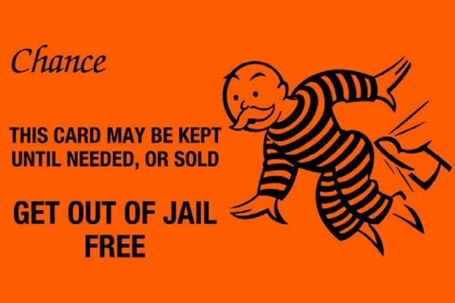What Is a Deferred Prosecution in WA?
A deferred prosecution, in Washington State, is an agreement by the State not to prosecute a DUI in exchange for the defendant’s agreement to enter into a very intensive supervision program. That program must, by law, include:
- completion of a two-year intensive outpatient alcohol/drug/or mental health treatment program; and
- no less than a five-year probationary term.
While many folks charged with a DUI see this as their proverbial “Get Out Of Jail Free” Card, it is not a one-size-fits-all option, as it comes with a significant amount of requirements and should only be pursued after full consultation with your attorney, with a complete understanding of what is expected of you.
A Washington State deferred prosecution program is very different than most other states. In the simplest terms, a Washington State deferred prosecution for DUI allows you to avoid all mandatory jail time, license suspension, and most fines for a DUI, with the chance to have the case entirely dismissed if you fully comply with the five-year program.
But the devil is always in the details.
What Are the Requirements for Deferred Prosecution in Washington State?
A person is only eligible for a Deferred Prosecution for DUI if they have never used the option before: if you completed a deferred one year or fifty years ago, you will not be eligible to obtain a second chance to complete the program.
Once you’ve elected to pursue a deferred prosecution for DUI, the first thing you’ll have to do is complete paperwork where you admit, under oath, that you have a problem with substance abuse or mental health, and that without this significant intervention from the court, the likelihood is high that you will receive another DUI.
That declaration alone might be enough to dissuade some folks from pursuing this option: it is truly intended for repeat offenders. Further, once you’ve told the court that you have a substance abuse problem that meets the requirement of the program, you must also obtain an evaluation from a certified substance abuse treatment provider, who must also find that your substance abuse meets the level required by the court.
An example of the paperwork you’d have to fill out can be found here. Once enrolled in the program, then you will have to complete the following:
- Attend a two-year substance abuse or mental health treatment program, with no less than two self-help meetings (usually Alcoholics Anonymous or Narcotics Anonymous) per week throughout that entire two-year period. That program will require that you remain abstinent from alcohol, marijuana, and non-prescribed, mood-altering substances during the entire five years of your deferred. You would be subject to random urinalysis tests through both your treatment agency and probation to confirm your abstinence.
- That generally consists of three different phases:
- Phase 1: intensive outpatient treatment consisting of a minimum of seventy-two hours of treatment in a maximum of twelve weeks. Most attend three group meetings per week during this phase.
- Phase 2: not less than weekly approved outpatient counseling, group or individual, for a minimum of six months following the intensive phase of treatment.
- Phase 3: not less than monthly outpatient contact, group or individual, for the remainder of the two-year deferred prosecution period
- Have a Washington ignition interlock device installed on your car. If you have never been required to have the ignition interlock installed in your car, you will likely have to maintain that device in the car for one year. If you previously had to have that device installed for one year, then the requirement is five years. If the five-year requirement has previously been imposed, then the requirement is ten years.
- You have to pay for this treatment out of your pocket (usually around $5,500) as well as court and probation costs that can add up to an additional $2,500. Many health insurance plans will cover a significant portion of the cost but not all agencies accept insurance. These fees might be waived if you can show proof of financial hardship to the court.
The court will continue the case for an additional three years following the successful completion of the two-year program. If, after this five-year period, you have complied with all of the court’s conditions (which include no consumption of alcohol or non-prescribed drugs) the court will dismiss both the criminal case and the DOL administrative action (unless it involves a refusal to take a breath test).
What Are the Disadvantages of a Deferred Prosecution Agreement?
The downside of a Washington State deferred prosecution is that you give up your right to trial and to challenge evidence. For some minor violations (i.e. missing a meeting with treatment, falling behind on required AA meetings) many courts will give a second chance. Other courts or judges, however, have a zero-tolerance policy. Any mistakes could mean a revocation and ultimately a conviction. For major violations (i.e. a new DUI, continued alcohol use) a revocation and conviction would be all but automatic.
If your deferred is revoked, the judge will enter a finding of guilt and all of the penalties of the original DUI and DOL administrative action will be imposed. In this sense, a Washington State deferred prosecution is an “all or nothing” proposition. Even if successfully completed your deferred and the charge was dismissed, a deferred prosecution will be considered a “prior offense” if you were to receive another Washington DUI.
A deferred prosecution can be a great program for people who truly have a problem with substance abuse (or mental health issues) and are committed to successfully completing a treatment program. Those who see it as an easy way to avoid a DUI conviction couldn’t be more mistaken: it is a very difficult, rigorous, and time-consuming program with many pitfalls and opportunities to fall out of compliance. Whether this program is right for you requires consultation with your attorney, a discussion with your treatment provider, and some serious soul-searching.
Schedule your consultation online or by calling (509) 800-5420 to speak with a defense attorney.

